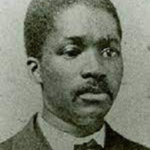KWAKU DUA I
- 5 Min Read
Kwaku Dua I (circa 1797-April 27, 1867) ruled as Asantehene from 1834-67. Upon coming to power, he proclaimed Asante policy as being “Peace, Trade, and Open Roads.” He wielded firm authority in a 33-year reign that was characterised by a foreign policy that sought accommodation rather than war with the British on the Gold Coast, and a domestic policy that did not countenance opposition.
Kwaku Dua, known earlier as Fredua Agyeman, was the son of the Asante Queen mother Amma Sewaa, and of the Nkwantananhene (head of one of the wards of Kumase), Boakye Yam Kuma of Kumase, who died in about 1797. He spent his early years in Dwaben, a founding state of the Asante Union located 15 mi (24 km) northeast of Kumase, where his mother had taken refuge with her brother, the Asantehene Osei Kwame (ruled 1777-98), in 1798, and where she remained to remarry.
Subsequently Kwaku Dua returned to Kumase, and was appointed Nkwantananhene by Osei Bonsu, (ruled as Asantehene from 1800-24). As a young man, he fought in the Asante campaigns against the Gyaman, a state 120 mi (192 km) northwest of Kumase in what is now the Ivory Coast, of 1818-19. After the election of Osei Yaw Akoto (reigned 1824-33) to the Golden Stool of Asante in 1824, he was recognised as heir apparent. He commanded a division of Asante troops at the battle of Katamanso (Akantamasu) near Dodowa, in 1826, at which a coalition of British, Fante, Akyem, Akuapem, and other coastal states defeated the Asante. Although the battle was lost he displayed much courage. His popularity was such that, after Osei Yaw Akoto’s death, he was elected to the Golden Stool seemingly unopposed.
It is said that because of his military experience, Kwaku Dua I swore never to use war as an instrument of policy. Certainly the programme on which he came to office was one of “Peace, Trade, and Open Roads.” Fully accepting the treaty which his predecessor had negotiated with the British in 1831, Kwaku Dua enjoyed from the beginning of his reign excellent commercial relations with the British merchants on the Gold Coast. In his first year in office, too, he opened negotiations with the exiled Dwabenhene (ruler of Dwaben), Boaten Panin (Kwasi Boaten), which finally came to fruition with the return of the Dwaben refugees to Asante in 1841.
In that same year, however, Kwaku Dua was obliged to dispatch forces to Gonja, to the north where a series of local disputes had assumed such proportions as to threaten the stability of the whole of the northern provinces of Asante. It was not until 1844 that the victorious armies finally returned to the capital. From the mid-1840s onwards, relations with the British began to deteriorate as successive British governors placed new and unacceptable constructions upon the terms of the 1831 treaty. In 1844, when a crisis arose concerning Assin, a buffer state between Asante and the Fante states to the south, Kwaku Dua overruled his senior officers who urged military interventions, and the matter – one of legal jurisdiction – was settled amicably. In 1852 a matter of jurisdiction again arose, and in the following year, Asante and British forces confronted each other near the Pra river, but hostilities were averted.
Finally, however, a series of incidents precipitated the Asante occupation of British-protected territory in 1863. Losing majority support for his policies of accommodation with the British, Kwaku Dua was obliged to dispatch an army to the south in an attempt to induce the British to recognise legitimate Asante interest.
Although the Asante forces met with little resistance, Kwaku Dua ordered their withdrawal before any major clash with the British could occur. Full-scale operations against the British-protected territories had to wait till the death of Kwaku Dua four years later, when Kofi Kakari (ruled 1867-74) was elected Asantehene on a war platform.
The domestic policies of Kwaku Dua I mirror in many aspects his foreign policies. Commerce was much encouraged, and public and private sectors of the economy showed significant growth. A system of taxation which fell most heavily on the rich, through death duties, averted popular unrest while maintaining sizable reserves of gold dust in the nation’s treasury. Christian missionaries were allowed to establish stations in Kumase and elsewhere. A few high-born Asante were sent to both Britain and Holland for education, including Owusu-Ansah, and Kwasi Boakye, but Kwaku Dua was keenly aware of the potential conflict between Christian and traditional values and maintained a careful watch over the situation.
Throughout almost the entire 33 years of his reign, Kwaku Dua sustained his personal authority intact against all opposition. It is somewhat paradoxical that an Asantehene so committed to pacific foreign policies would have maintained a politically repressive regime. In a purge in 1839 he destroyed the old guard of functionaries whose careers had been shaped by the policies of the previous reign. In 1848 two royals and their supporters, who had too enthusiastically embraced Christianity, were executed.
Between 1857 and 1859 the Queen mother Afua Sapon was induced to commit suicide, and heir apparent Osei Kwadwo was removed from office and died shortly after. Numerous functionaries were executed; all were opponents of Kwaku Dua’s policies towards the British, and were accused of plotting to force him off the Golden Stool in favour of Osei Kwadwo. Only in 1863 did Kwaku Dua finally relax his control, recognising that the opposition by then commanded a majority in the councils.
The next four years saw an uneasy compromise between the Asantehene and his councillors, until his death on April 27, 1867 ended a reign as remarkable for its length as for its achievement.
IVOR WILKS



